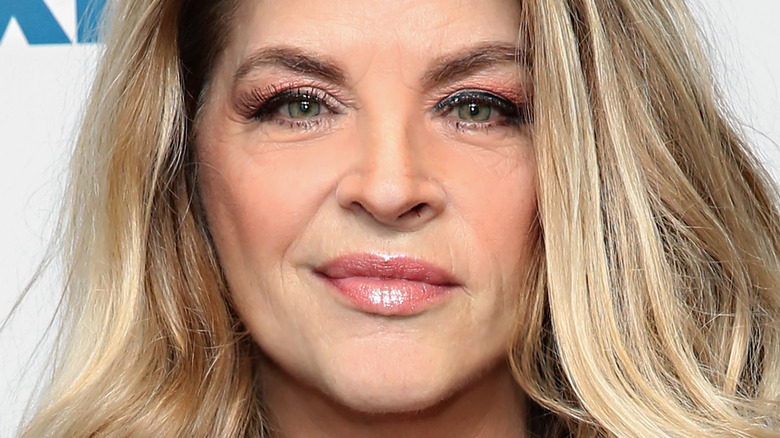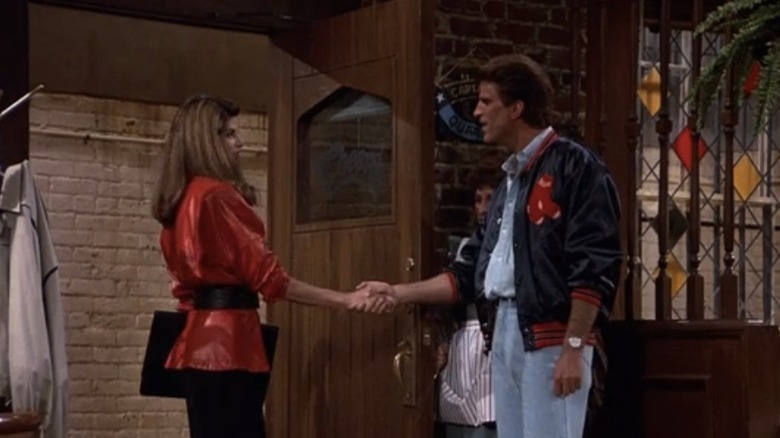Kirstie Alley Was A Fan Of The 'Dictatorship' Feel Of Cheers' Set
When Shelley Long decided to hang up her apron to leave her role of Diane on "Cheers," she destroyed the dynamic that had made the show such a success. Her replacement, Kirstie Alley, had made somewhat of a name for herself from her role as Saavik in "Star Trek II: The Wrath of Khan," but according co-creator James Burrows in a 1987 New York Times interview, Alley wasn't enough of a name that she could draw attention away from the rest of the show. ”She was an unfamiliar face on television so we wouldn't be tilting the balance of the show by bringing in a known quantity,” Burrows told the Times.
The idea behind the new character was to reverse the dynamic of the original Sam and Diane love story where Sam (Ted Danson) owned the bar and Diane (Long) was his waitress. Instead, now Rebecca (Alley) owned the bar and Sam was her waiter. ”Where he was straight man to Shelley, now he can be more of a goof-off,” co-creator Les Charles said in the same Times interview.
In an interview with Variety for the 25th anniversary of the show's finale, co-executive producer Rob Long mentioned that, at the time, NBC had very few original ideas and wanted to rely on spin-offs with built-in audiences. Burrows then mentioned that there was talk of spinning off Alley's character instead of Frasier (Kelsey Grammer). So it would seem that the creators' gambit in reversing Sam and Diane's dynamic paid off if Rebecca almost got her own spin-off. And it probably helped her character's development and popularity that Alley really liked the process of the show's creators.
Kirstie Alley called Cheers a boys club...and meant it as a compliment!
In an interview with the LA Times shortly before the airing of the "Cheers" finale, each of the cast members were asked about their memories of the show. Alley had an interesting take, calling the show a boys' club and a dictatorship. "'Cheers ' is a dictatorship," Alley explained at the time. "It is a boys' club and they dictate what the girls do and that is the way you do it (laughs). There are no conferences about what your character is or should be. It makes people go unconscious. They just tell you what your character is doing in the script, period . But I sort of like that. It is sort of refreshing. There is a certain peacefulness in dictatorship because you know there are no other answers and no hashing it through. You don't have to think about it and you can basically be mindless. There's a nice inner peace in being mindless (laughs)." Alley went on to explain that the reason she loved working on "Cheers" was that she simply had to recite her lines and then go home.
In another interview with the creators for the 25th anniversary of the finale for THR, producer Cheri Steinkellner admitted that it took a little while for the writers to figure out what to do with the character of Rebecca. They didn't fully understand the character until the sixth episode of her first season "Paint Your Office" when they first saw Alley cry and realized she could cry on cue, and she was really funny crying. From there, the working relationship between Alley and the writers improved, to the point where they wrote her character well enough to win her an Emmy in 1991.

